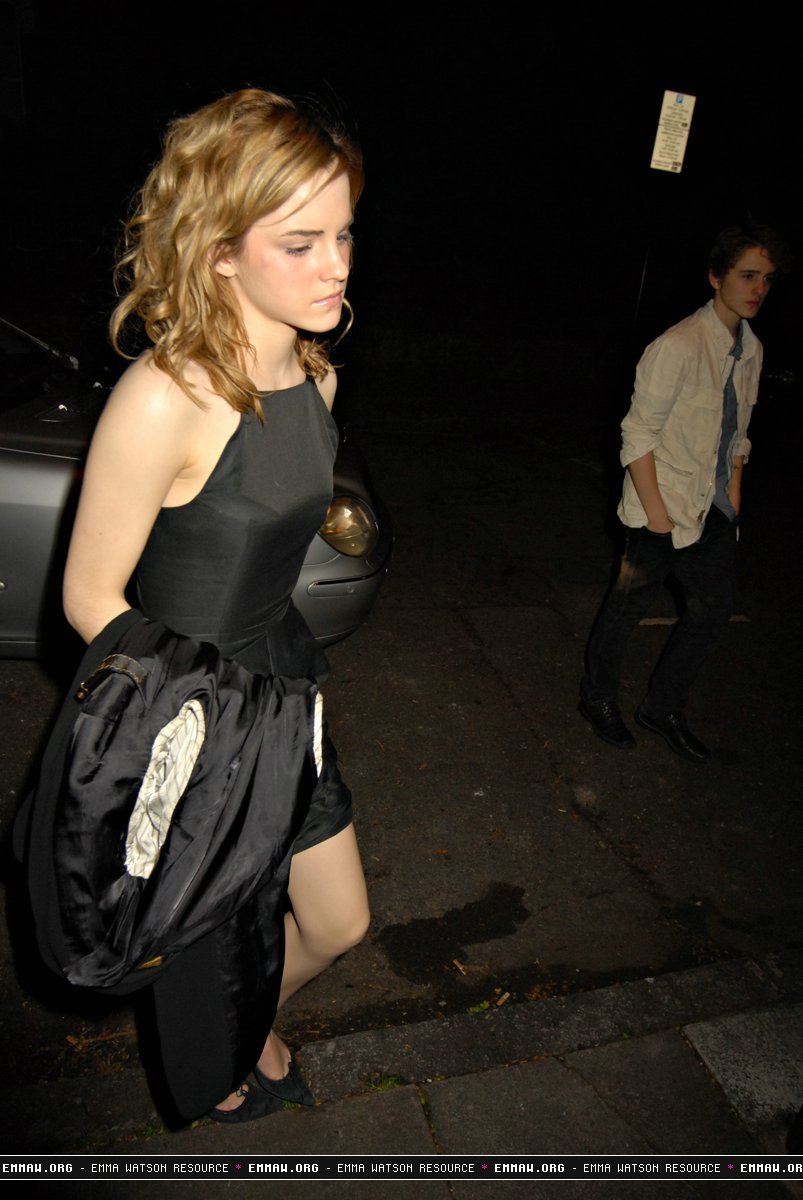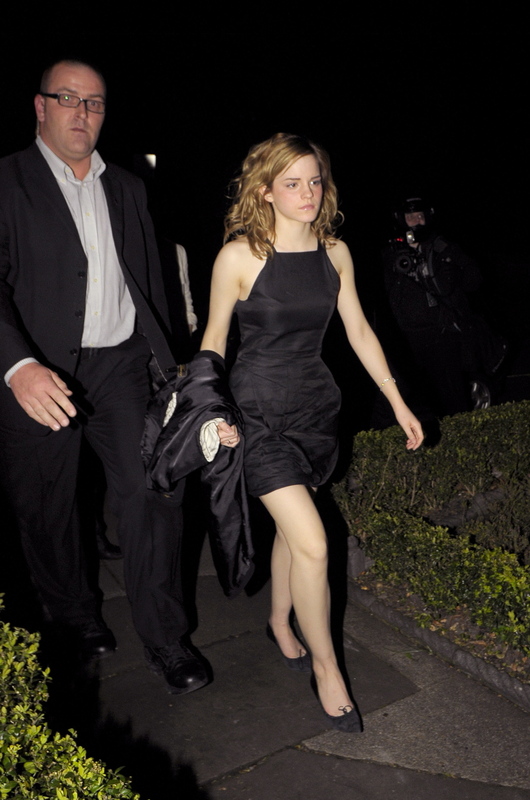Emma Watson: From 18th Birthday To Date Of Birth & Beyond
What price fame? For Emma Watson, the cost of burgeoning stardom included a deeply unsettling experience on her 18th birthday, a day meant for celebration that instead became a stark illustration of the intrusive nature of celebrity culture.
The actress, known globally for her role as Hermione Granger in the Harry Potter film series, has recently revisited a painful memory from her coming-of-age. It serves as a poignant reminder of the pressures placed upon young women in the public eye, particularly in the early 2000s, a period where tabloid journalism thrived and paparazzi tactics often crossed ethical boundaries.
Watson's story, recounted in various interviews and through her own public statements, paints a clear picture of the challenges she faced. Her 18th birthday, a milestone for most, was marred by the aggressive pursuit of photographers. As she exited her birthday party, held on April 15, 2008, in an undisclosed location, she was met with a scene that was both shocking and deeply violating. Photographers, relentless in their pursuit of a salacious image, resorted to desperate measures. They laid on the ground, angling their cameras upwards to capture photographs of her skirt. These photographs, taken without consent and intended to exploit her, were then published in the English tabloids the following morning, an event that left a lasting impression.
This incident, more than just a momentary intrusion, represents a larger pattern of behavior that Watson has consistently spoken out against. It highlights the sexualization of young women in the media and the ethical failings of those who prioritize profit over privacy and respect. Its a stark contrast to the typical experiences of young adults celebrating their 18th birthdays.
The aggressive behavior Watson describes is not isolated. Celebrities, especially those in their formative years, have often found themselves targets of paparazzi. The media landscape, particularly the proliferation of celebrity gossip websites and magazines, fueled a demand for images, often at the expense of those photographed. This demand incentivized increasingly intrusive and, at times, illegal tactics from photographers.
Adding to the context, in 2009, around the time of this incident, Watson was quickly establishing herself in her career while simultaneously navigating the shift from child actor to young adult. This meant facing not only new challenges but also amplified levels of public scrutiny. The media, with its insatiable appetite for sensationalism, played a significant role in shaping the narrative around her, often focusing on her appearance and personal life rather than her professional achievements or personal growth.
Watson's response to this treatment has been to advocate for respect and boundaries, and her stance is consistent with the values she promotes through her activism. Watson is a prominent feminist voice, and her actions consistently mirror this alignment. This incident serves as a testament to her resilience and commitment to speaking out against injustice, even when the memories are painful.
In a recent appearance in New York, Watson spoke about this issue in a public forum, emphasizing the need for gender equality in arts. This speech also comes as the kickoff to the HeForShe Arts Week, a campaign she launched earlier, aimed to promote gender equality in art venues throughout the city. The fact that she chose to address these issues in the context of gender equality underscores the impact of the event.
Watson's story highlights the fact that for every red carpet appearance and media success, there are often unseen struggles with the public eye. It is a crucial reminder that celebrities are not simply characters, but complex individuals deserving of dignity and respect.
As a result of this incident, the memory of her eighteenth birthday is a painful reminder of how her privacy was violated and how she was exploited by those who wanted to benefit from it. Her experience highlights a pattern of intrusive behavior by the paparazzi.
The timing of the publication of the photographs is crucial to understand the legal implications. If the photographs had been published 24 hours earlier, before she turned 18, they would have been illegal, indicating the intention to exploit her youth. Emmas experience is unfortunately part of a wider trend of celebrity exploitation by the media.
| Category | Information |
|---|---|
| Full Name | Emma Charlotte Duerre Watson |
| Date of Birth | April 15, 1990 |
| Place of Birth | Paris, France |
| Education | Brown University (Bachelor of Arts in English Literature) |
| Known For | Hermione Granger in the Harry Potter film series; Feminist activism |
| Career Highlights | Harry Potter film series, Beauty and the Beast, The Perks of Being a Wallflower, Little Women |
| Activism | UN Women Goodwill Ambassador, HeForShe campaign |
| Awards | Numerous Teen Choice Awards, MTV Movie Awards, People's Choice Awards, and others for her acting roles |
| Social Initiatives | Promotes sustainable fashion, supports gender equality and education initiatives |
| Reference | IMDB |
The experience of young Emma Watson, in stark contrast to that of her peers, is a stark reminder of the pressures faced by celebrities, who from a very young age are subjected to relentless scrutiny and, at times, blatant disregard for their privacy. The tabloid focus on her appearance and personal life also added pressure.
Watson's story is a cautionary tale about the power of celebrity culture, highlighting the fine line between public fascination and unwanted intrusion. The incident highlights the pervasiveness of the paparazzi and their relentless pursuit of a story, regardless of the cost.
The photographs taken on her 18th birthday, and the manner in which they were acquired, epitomize the media's willingness to exploit and sexualize young stars, raising important ethical questions about consent, privacy, and the responsibility of the press.
Beyond her own experiences, Watson continues to use her platform to advocate for social causes, especially gender equality. She is not afraid to engage with social issues, from fashion sustainability to education and her efforts have become well-known and respected.
Watson's ongoing activism and use of her platform to promote positive change are a testament to her character. Her actions, since this incident, speak volumes about her values and her determination to use her fame for good.
For many, turning 18 is a time of joy. In the case of Emma Watson, however, it became a moment that symbolizes the dark side of celebrity culture, a reminder of the price of fame, and a call for greater respect for the privacy of those in the public eye.
Her experience serves as a reminder of the importance of safeguarding privacy and promoting ethical media practices.
The events surrounding her 18th birthday are not simply a story of a single event, but a broader conversation about the treatment of young women in the media.
Watson's story echoes the experiences of many young women in the public eye, reinforcing the need for media outlets to behave responsibly when dealing with young people. The incident highlighted in her memory is a testament to her resilience and continued activism.
The media frequently focuses on her appearance, and this often overshadows her accomplishments and her efforts to make a difference in the world.
Emmas reflections on this period in her life should serve as a reminder of the importance of treating public figures with respect and dignity, especially those in their youth.


